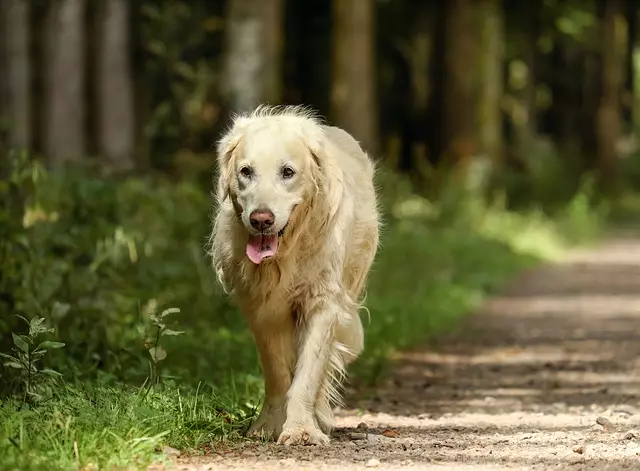As our canine companions age, they transition from rambunctious pups to wise seniors who have graced our lives with their love and loyalty. Whether you’ve been fortunate enough to adopt a young pup or have provided a warm home for a senior rescue dog, these aging canines require our extra attention to ensure their comfort and happiness. In this article, we will explore the essential ways to care for your senior dog and the changes you might observe as they enter their golden years.
With age comes a myriad of physical and sensory changes, not just in humans but also in our furry friends. One of the most prevalent signs of aging in dogs is the deterioration of their joints. As our dogs grow older, you may notice a reluctance to jump onto the couch or difficulty maneuvering stairs, which is not just a sign of stubbornness but a direct result of stiffening joints. While you can’t turn back the clock, there are several proactive measures you can take. Joint supplements containing glucosamine and omega fatty acids can bolster joint health, while gentle exercise can maintain flexibility.
Additionally, you should keep an eye on your dog’s mobility. Regular, shorter walks may be more beneficial than the long outdoor adventures they once enjoyed, and consider engaging a veterinarian about recommended activities suited for senior dogs.
As dogs grow older, their senses may diminish. Hearing loss is common, resulting in your dog appearing more distracted or less responsive to commands. Similarly, visual impairments can develop, which might be apparent if your dog has trouble catching a thrown ball or navigating familiar spaces. Understanding these sensory changes is vital, and it might be worth scheduling a vet visit to assess their hearing and vision, ensuring you take the right steps to support them during this transition.
You can also modify your home environment to accommodate their needs. Consider using brightly colored toys that are easier to see and employing commands more frequently to maintain a connection with your aging pup.
Senior dogs are notorious for their love of sleep, often making them the ultimate cuddle buddies. Therefore, creating a comfortable living space is essential. Soft, supportive dog beds strategically placed around your home can significantly enrich their quality of life. Older dogs, particularly those with joint issues, benefit from various beds that offer adequate support.
Additionally, ensure that their lounging spots are away from drafty areas and are easily accessible. You may want to provide steps or ramps near couches or beds to assist them in getting to their favorite spots without strain.
As dogs age, their skin can become drier and more sensitive. You might notice flaky skin or dry patches, particularly on their elbows and noses. To combat these issues, dietary supplements rich in omega fatty acids can help maintain moisture levels from within. Topical treatments, such as moisturizing balms or coconut oil, can offer relief for any irritated areas.
Furthermore, regular grooming is important not just for aesthetic purposes but also for keeping their coat healthy and removing dead hair. Senior dogs benefit from a gentle grooming routine that addresses their specific skin and coat needs.
Aging dogs require more frequent vet check-ups to monitor their health. Regular visits—ideally every six months—help catch potential health concerns early on. The frequency of illumination during these appointments allows for timely intervention and easier management of any developing conditions. It’s essential to collaborate with your veterinarian regarding suitable tests for your senior dog.
Moreover, as their dietary requirements change over time, a vet consultation will aid in identifying the best diet that supports their overall health. Depending on their activity level and any medical conditions, adjustments may be necessary.
Senior dogs possess a unique charm—marked by their wisdom and tranquility. They are often perfectly content with a quiet day at home, savoring every moment spent by your side. If you’re considering adopting a senior dog, know that you’re not just giving them a home; you are enriching your life with loyalty and gratitude.
Showing love to your senior dog can be expressed in numerous ways, from creating special bonding moments during quiet downtime to ensuring they have snug nooks to retreat and relax. It’s the small gestures, like gentle ear rubs or bespoke treats, that will help deepen your bond.
Your senior dog has dedicated years to being your loyal friend, and now it’s your turn to provide them with the comfort and care they deserve in their twilight years. By making thoughtful adjustments in their lifestyle and remaining attentive to their needs, you can ensure that their golden years are filled with joy, love, and cherished memories. Embrace this phase of life, for it holds the potential for a profound connection that lasts well beyond the wag of their tail.

